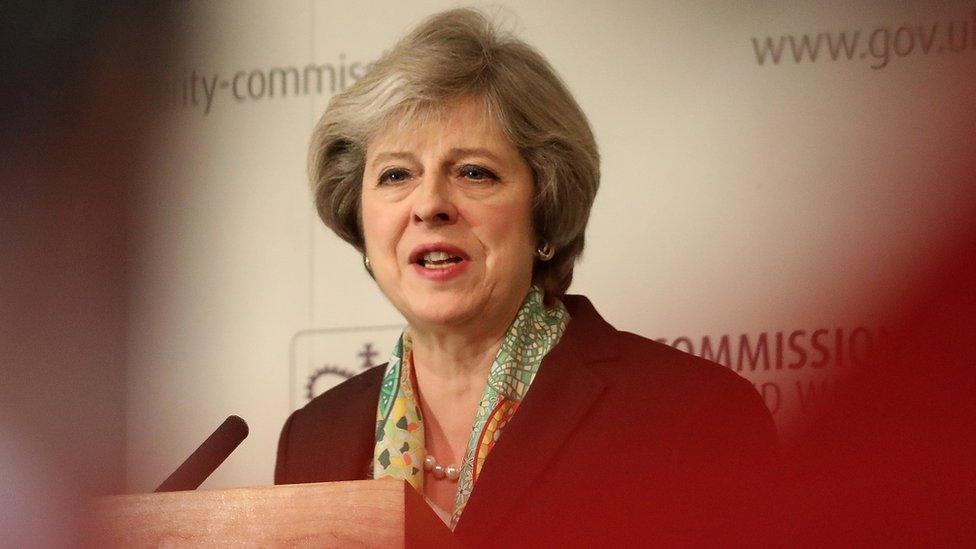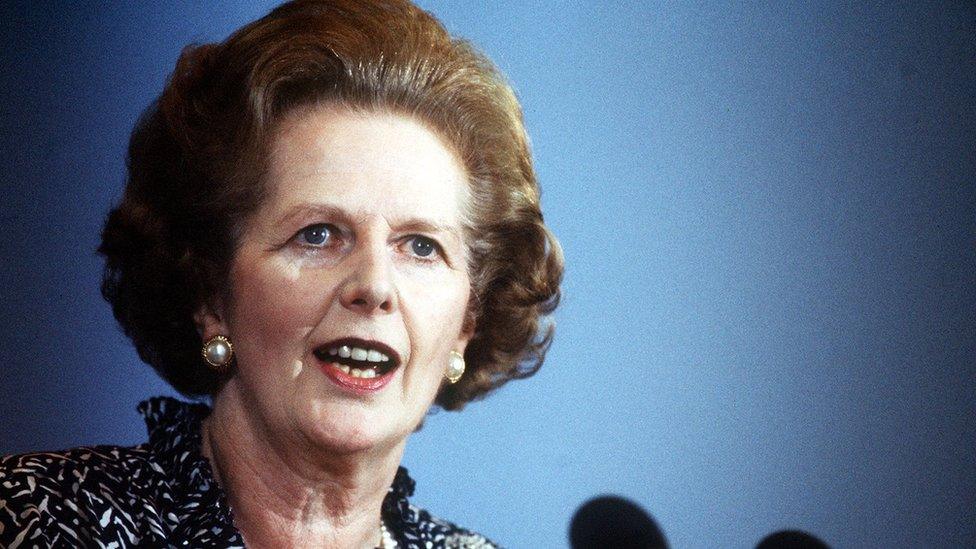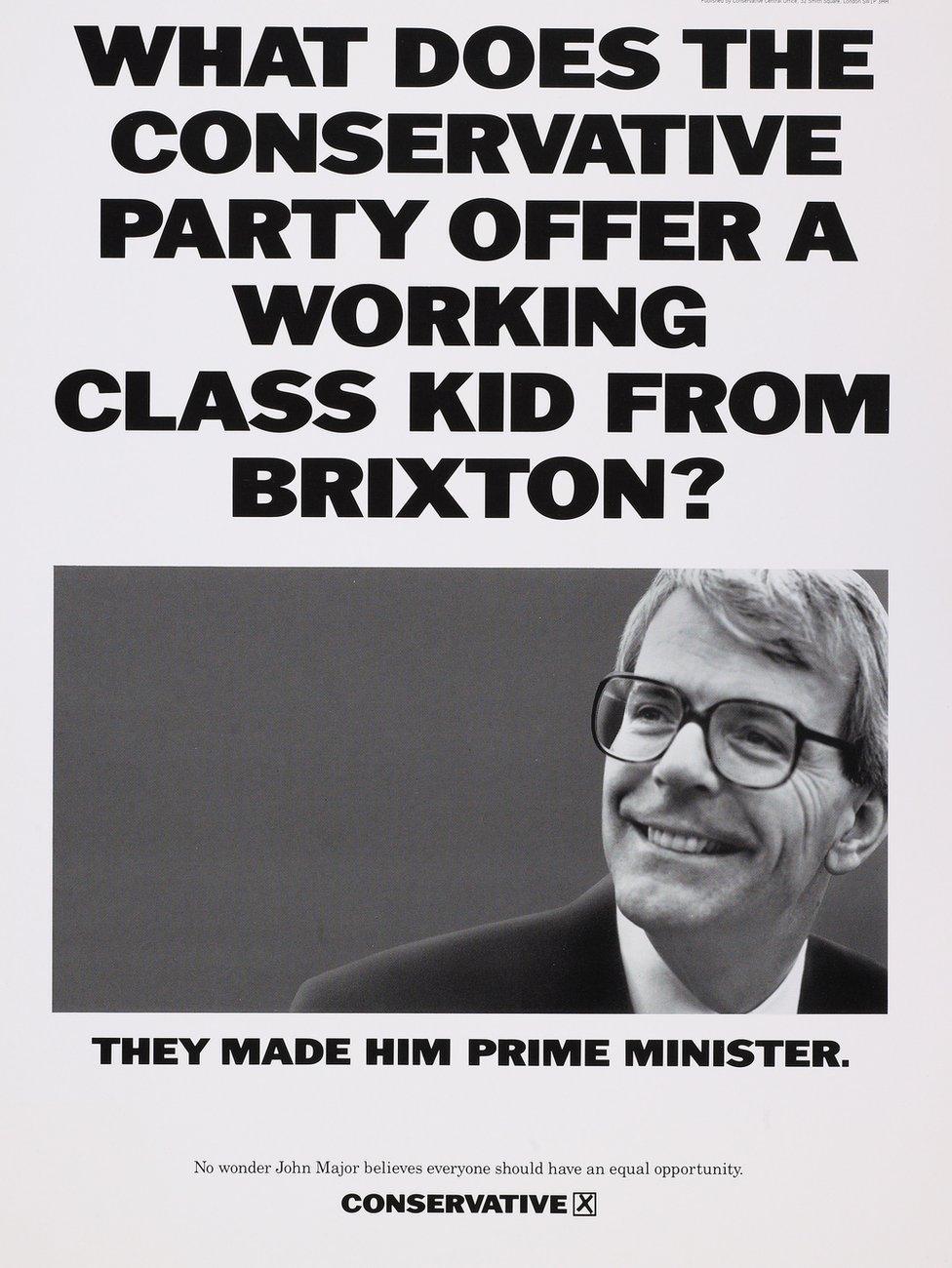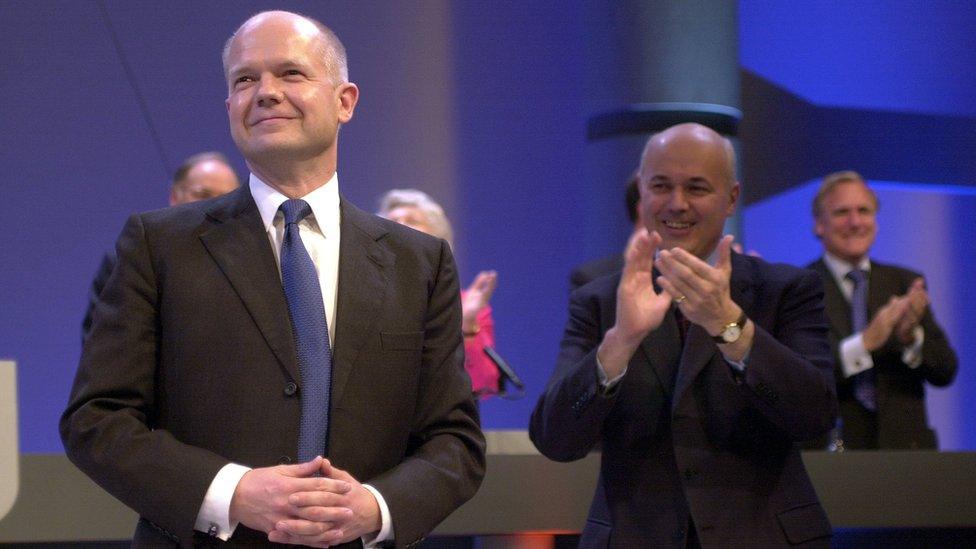Society and the Conservative Party
- Published

Theresa May has set out her vision for a "shared society" in which the state has a role in helping people who are struggling to get by. It marks the latest attempt by a Conservative leader to spell out what society should, or should not, be.

'No such thing'?

Margaret Thatcher's remark about society was one of her most famous
In a 1987 interview with Woman's Own magazine, Margaret Thatcher said there was "no such thing as society", and that line went on to become one of her most famous.
It has been much debated over the years, with critics seeing it as evidence of a heartless approach where needy individuals are left to fend for themselves.
But Thatcher's supporters complain the quote is taken out of context, and in her memoirs the former PM said it had been "distorted beyond recognition".
More recently, polling has found, external that while a strong majority of people disagreed with the "no such thing" line in isolation, most agreed with the longer version.
Here it is: "I think we've been through a period where too many people have been given to understand that if they have a problem, it's the government's job to cope with it... They're casting their problem on society.
"And, you know, there is no such thing as society. There are individual men and women, and there are families, and no government can do anything except through people, and people must look to themselves first.
"It's our duty to look after ourselves and then, also, to look after our neighbour. People have got the entitlements too much in mind, without the obligations. There's no such thing as entitlement, unless someone has first met an obligation."

'Classless'

Thatcher's successor, John Major, entered Downing Street in 1990 promising to create a "classless society", which he described as a "a tapestry of talents in which everyone from child to adult respects achievement".
He was still talking about it in his party conference speech the following year: "I spoke of a classless society. I don't shrink from that phrase.
"I don't mean a society in which everyone is the same, or thinks the same, or earns the same. But a tapestry of talents in which everyone from child to adult respects achievement; where every promotion, every certificate is respected; and each person's contribution is valued. And where the greatest respect is reserved for the law."

'Responsible'

William Hague promised a 'responsible society'
Next up was William Hague, who called for a "responsible society", and said Thatcher's famous line had been wilfully misinterpreted and used against the Conservatives.
"A strong society rests on responsible individuals and families. They need to be able to turn to straightforward, reliable help when times are bad," the Tories' 2001 manifesto, external said.
"But that should not become dependence on the state when times are good."

'Big'
David Cameron: "I think we're onto a really big idea, a really exciting future for our country"
"There is such a thing as society; it's just not the same thing as the state," declared David Cameron in his 2005 victory speech, external after becoming Conservative leader.
Five years later, the idea of a Big Society was a key strand of the Conservatives' 2010 general election manifesto.
It involved allowing voluntary groups and charities to run public services, encouraging people to do more volunteering and giving local groups more power to take decisions affecting their area.
After becoming PM, Cameron described building the Big Society as his "great passion", hoping "people power" would help keep pubs and museums open and mean more residents getting involved with their communities.
But there were reports Conservative candidates found it a hard concept to explain on the doorstep, and the Tories' political opponents said it was simply a way of hiding cuts to local services as the new government reduced public spending.
Mentions of the Big Society became less prominent over the course of the Parliament, and the theme featured little in the 2015 general election campaign.
Having quit frontline politics after the 2016 EU referendum, Mr Cameron now works with the National Citizen Service, describing the organisation as "the Big Society in action".

'Shared'
Prime Minister Theresa May said she wanted to "build a better Britain"
In what has been seen as a break from David Cameron's championing of voluntary work, Theresa May has stressed the role of the state in creating "a society that works for everyone".
The so-called shared society, she says, "doesn't just value our individual rights but focuses rather more on the responsibilities we have to one another" and respects "the bonds of family, community, citizenship and strong institutions that we share as a union of people and nations".
In a speech setting out her vision, she said there was "more to life than individualism and self-interest".
"We form families, communities, towns, cities, counties and nations. And we embrace the responsibilities those institutions imply.
"And government has a clear role to play to support this conception of society."